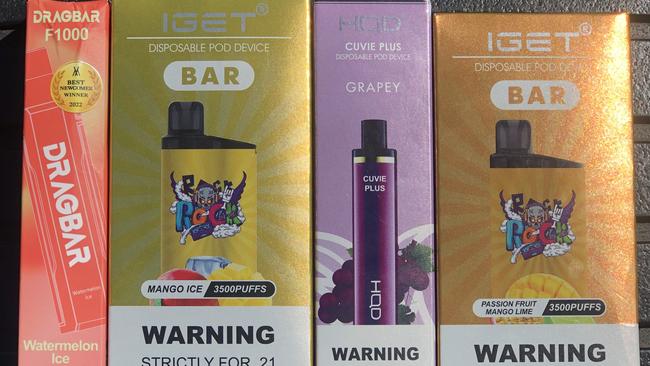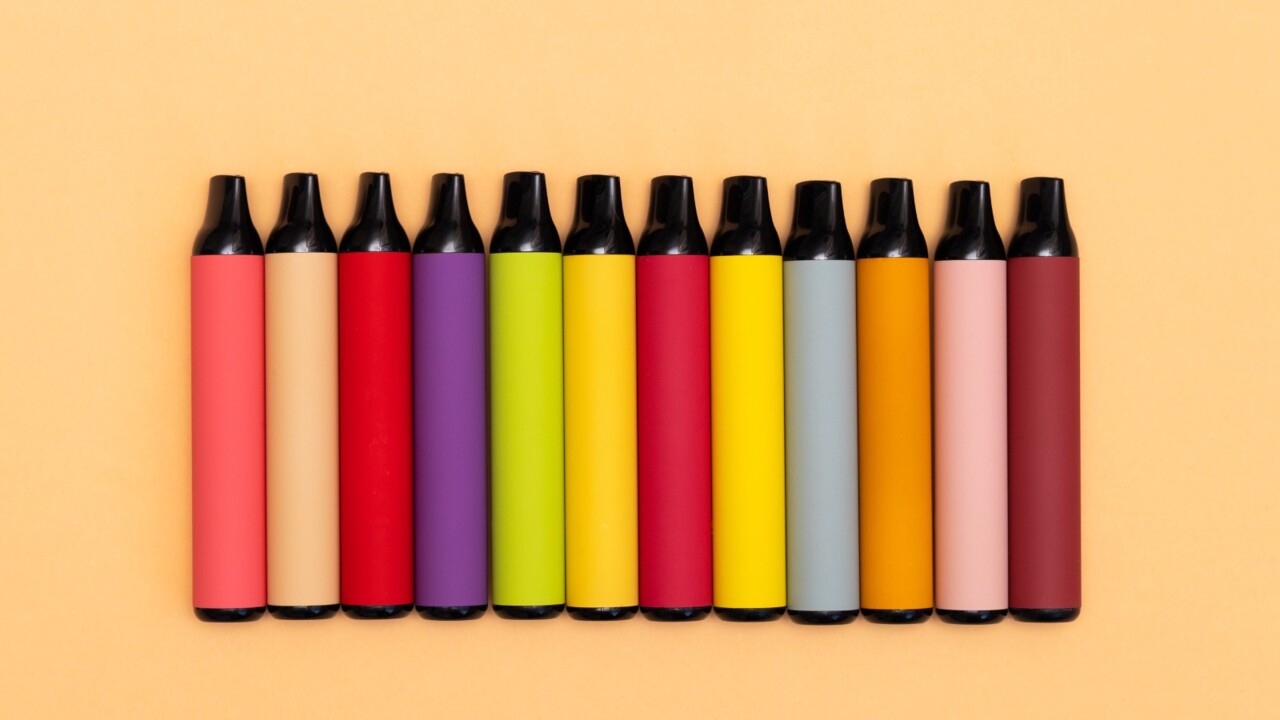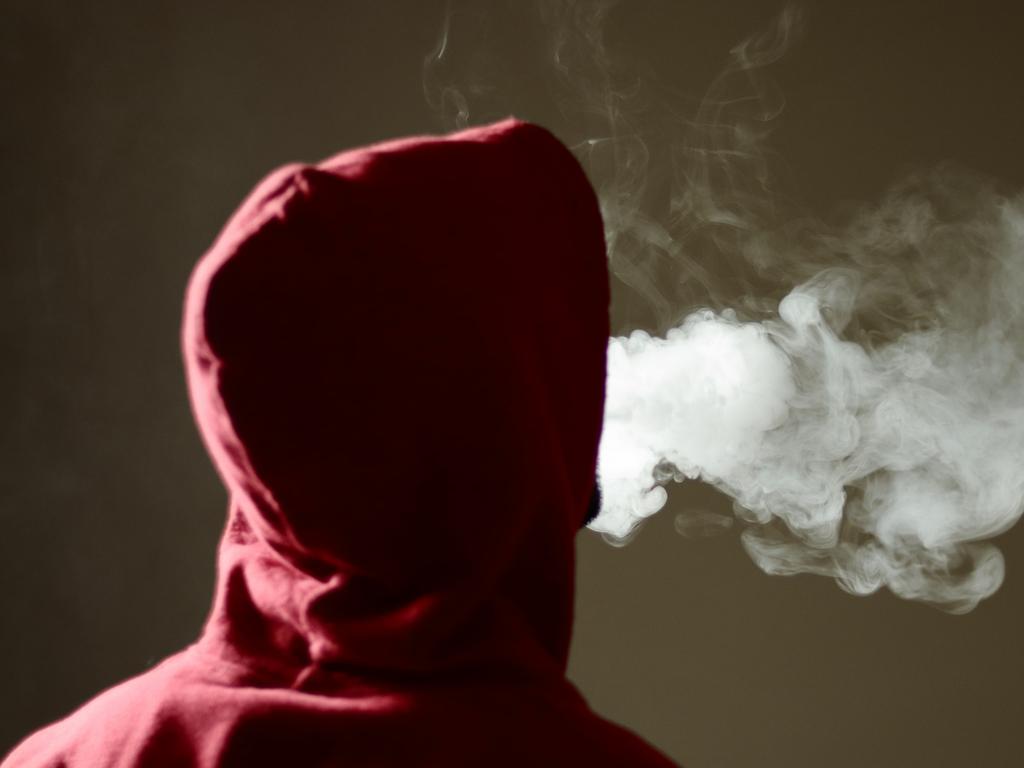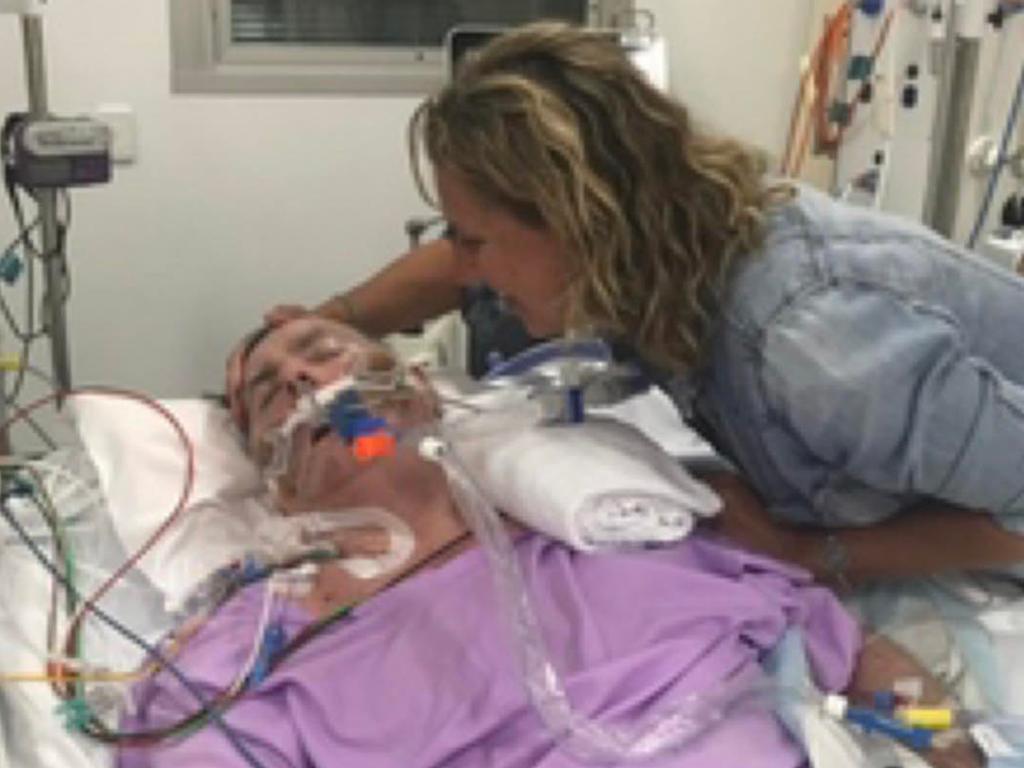Children who vape are more likely to smoke
Vapes are harming children, adolescents and young adults by addicting them to nicotine while there is conclusive evidence linking e-cigarettes to poisoning, seizures and lung injuries.

Vapes are harming children, adolescents and young adults by addicting them to nicotine, while there is conclusive evidence linking e-cigarettes to poisoning, seizures and lung injuries.
A review of more than 400 studies by the Australian National University, published in the Medical Journal of Australia, has found non-smokers and young people are at the greatest risk of addiction, toxicity and taking up smoking.
The study found young nonsmokers who vaped were three times as likely to start smoking cigarettes compared to young people who didn’t vape.
Lead author Emily Banks from the ANU National Centre for Epidemiology and Population Heath said addiction was a serious health issue and young people were increasingly vaping.
“Almost all e-cigarettes deliver nicotine, which is extremely addictive,” Professor Banks said.
“Addiction is common in people using vapes, and young people are especially vulnerable to addiction, as their brains are still developing.”
The ANU paper found most people were not vaping to quit smoking, and cigarette smokers who vaped continued to smoke cigarettes, although there was evidence e-cigarettes can help some smokers quit.
The review found there is conclusive evidence that vapes can cause poisoning and inhalation toxicity, which can cause seizures, and e-cigarette or vaping product use-associated lung injury – known as EVALI.
EVALI has emerged alongside the rise of vaping, and the ANU study found the illness was largely linked to e-liquid vapour containing THC or the additive vitamin E acetate.
Australian Medical Association president Steve Robson said vaping was one of the biggest public health issues since tobacco and called on the government to crack down on the black market.

“Australian governments need to act now to enforce existing laws and clamp down on illegal non-prescription sale of e-cigarettes, as well as strengthen controls on the importation of all nicotine and non-nicotine vaping products,” Professor Robson said.
“This will help us start to tackle the issue of vapes being marketed and sold to children.”
Under laws introduced by the former Coalition government in October 2021, vapes containing nicotine can be bought only by people with a prescription, while all vapes, regardless of whether they contain nicotine, can be sold only to people over 18.
Despite this, a vaping black market is thriving in Australia and vapes can be easily purchased in stores and tobacconists.
The Australian on Monday reported the Albanese government was considering a crackdown that could include new taxes, plain packaging, border checks, intense police scrutiny, and vape bans.
Vapes can also cause trauma and burns if the device’s lithium batteries explode, and there is some evidence e-cigarettes can cause headaches, coughs, throat irritation, dizziness and nausea.
Cancer Council Public Health Committee chair Anita Dessaix said e-cigarettes were not safe and threatened Australia’s tobacco control success.
“Every state, territory and the federal government now has more than enough evidence to act immediately to reduce illegal supply and access,” she said.








To join the conversation, please log in. Don't have an account? Register
Join the conversation, you are commenting as Logout